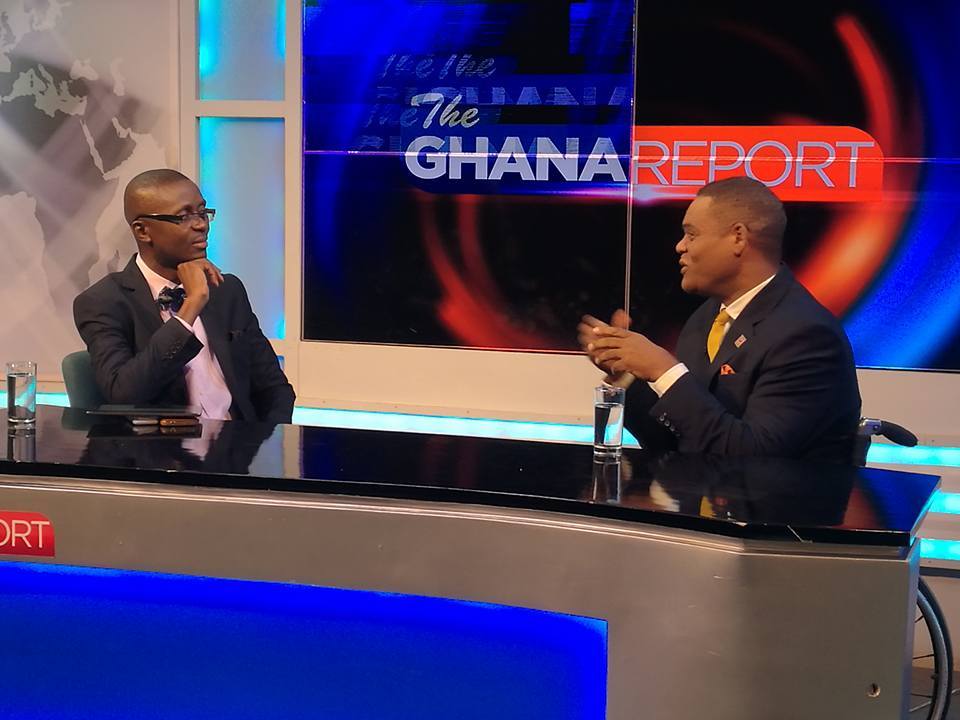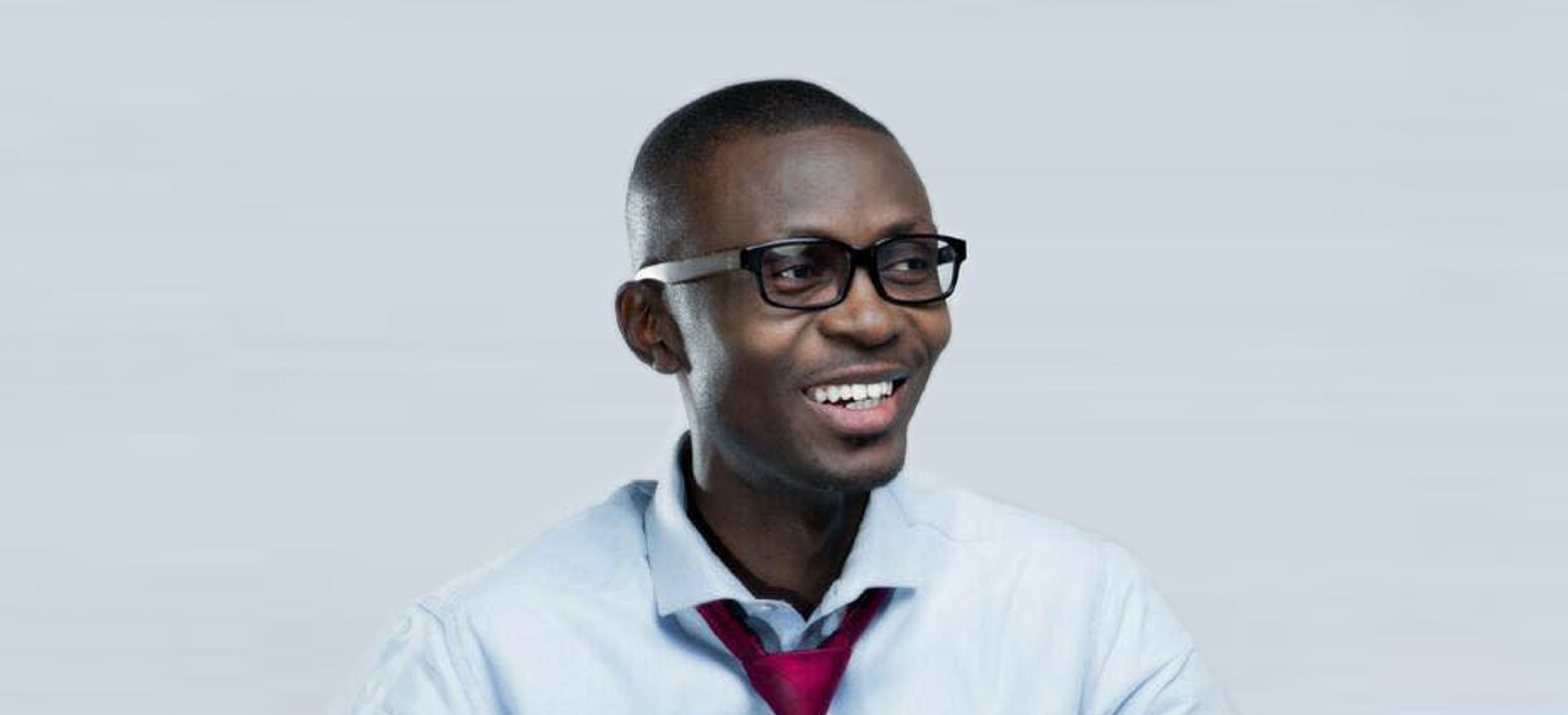Award-winning journalist Bernard Avle is one of the most well-known radio broadcasters in Ghana. He hosts The Citi Breakfast Show and also serves as the Director of News at Citi FM. His background in economics gives him a unique perspective on the world of journalism, but he’s first and foremost interested in using the power of human stories to make real change.
CS: When do you feel most creative?
BA: When I’m on air. Despite everything else I do, my primary job is an on-air broadcast journalist. And I feel most empowered and most liberated when I’m in an interview situation on the radio or a discussion situation where I knit different ideas together and bring a new idea across to my listeners.

African story on his popular radio show, The Citi Breakfast Show
(source: Bernard Avle)
CS: Your job on The Citi Breakfast Show is all about communication. What do you think makes an effective communicator?
BA: Listening skills. If you want to connect to people you have to hear them, and that includes listening for what is not said—so you must have great observational skills too. If you make eye contact during an interview you can see that after you asked that question, the person’s eyes lit up, so there’s more there and so you can push it a bit further.
CS: How do you find balance in your life?
BA: That’s a really tough one. Some of balance is in having the right people around to help you out where you are weak. I have a very great wife who strengthens the places I’m weak and cheers me on. Even though it doesn’t look like it, I’m still pretty young; I’m still below 40! I think that the future belongs to people of my age, and if we put in our best at a young age we can make the world a better place for our kids. I have three sons who are all below six years old, so part of the balance is in learning that in working hard, I’m creating a better planet for them. Because it’s about them.
And we also have faith. I’m a Christian and I really believe in prayer. And I think that faith helps with the things that you can’t normally do with your physical mind. It lets you know there’s a higher force that helps you out when you are weak.
CS: When do you most feel a connection to something larger than yourself?
BA: When something you do becomes the answer to somebody’s prayer. For me, that’s how you find God. Because God is a creator. So when I creatively solve people’s problems and they’re happy, I definitely feel that I’ve made an epic connection.

economic and political issues with a vibrant and witty presenting style
(source: Bernard Avle)
CS: What makes you curious?
BA: People! People are the crown of creation. So when somebody sits in front of me, I say to myself, “Wow, this is a whole world that’s before you. How can you take a part of this world and let somebody else see it?” Human beings are stories—in the sense that behind everybody you meet there’s a fascinating story, a journey, some achievement, or some deep-seated fear. The more people I meet, the more blessed I am. The poorest day of my life is if I spend all day in my room alone without talking to anybody.
CS: After so many years as a radio broadcaster, do you ever still get nervous before an important interview?
BA: Of course! When I have a big interview the next day, I get very excited about it, but I also get a bit nervous. I know that if you don’t gauge interviews well—even with so many interviews under my belt—you can really ruin it. You can never be so good that it becomes second nature. You need to treat every interview with the same seriousness of your first interview. Because every person is different, everybody has a unique story, and you need to enter their story in order to tell it properly.
CS: Do you have a favorite interview you’ve done over the years?
BA: In the past I might have said, “Oh, I did an interview with a president or a vice president,” but I’m redefining that. The media space is very male dominated, and it’s all dominated by educated people. And you can get good interviews by talking to articulate people. But increasingly, I’m proudest of interviewing people who don’t typically make it onto media platforms—someone who’s been through child slavery or a woman who’s combining single motherhood with working in a market and taking evening classes to get an education. That kind of interview, to me, is bigger because what you’ve done is you’ve changed that person’s world. If the right people hear the story, they can do something about it. I think those kinds of interviews define you more as a journalist.

CS: Working in radio, music is part of your job. Do you have a favorite song or artist?
BA: Oh, Bob Marley is the biggest! I love reggae music because it reflects a lot of realities. He was mixed race, so he reflected many worlds, but he specifically touched a lot of Africans. He died way too young, but you know, “It’s whom the gods love who die young.” So it’s not surprising that he died young. I think his message is as relevant today as it was when he was in his prime. For me, he’s one of the greatest prophets we had in the 20th century.
CS: What’s something about Ghana that you wish more people around the world knew?
BA: Number one, Ghana is not the same thing as Guyana. A lot of people in the western hemisphere, when you say you are from Ghana, ask, “Oh did you say Guyana?” [Laughs] Ghana is one of the prescient African countries, with a fantastic history. Our first president was a Pan-Africanist. He was almost like the father of Pan-Africanism—Kwame Nkrumah. He understood our problems a hundred years before the problems even emerged. I think a lot of people don’t know about our rich history. They don’t know that some of the greatest minds came from here.
And we’re also very nice people! I don’t know if the world knows that. We’re very welcoming. In fact, Ghanaians are hospitable to a fault. It’s one of the friendliest countries for foreigners of any kind because Ghanaians like to make people feel at home. And we’re at the center of the world—we’re close to the equator, we’re on the Greenwich meridian. I like to say life started from Ghana. [Laughs] So people should come and see where it all began.
Originally published at journal.mindmeet.us


